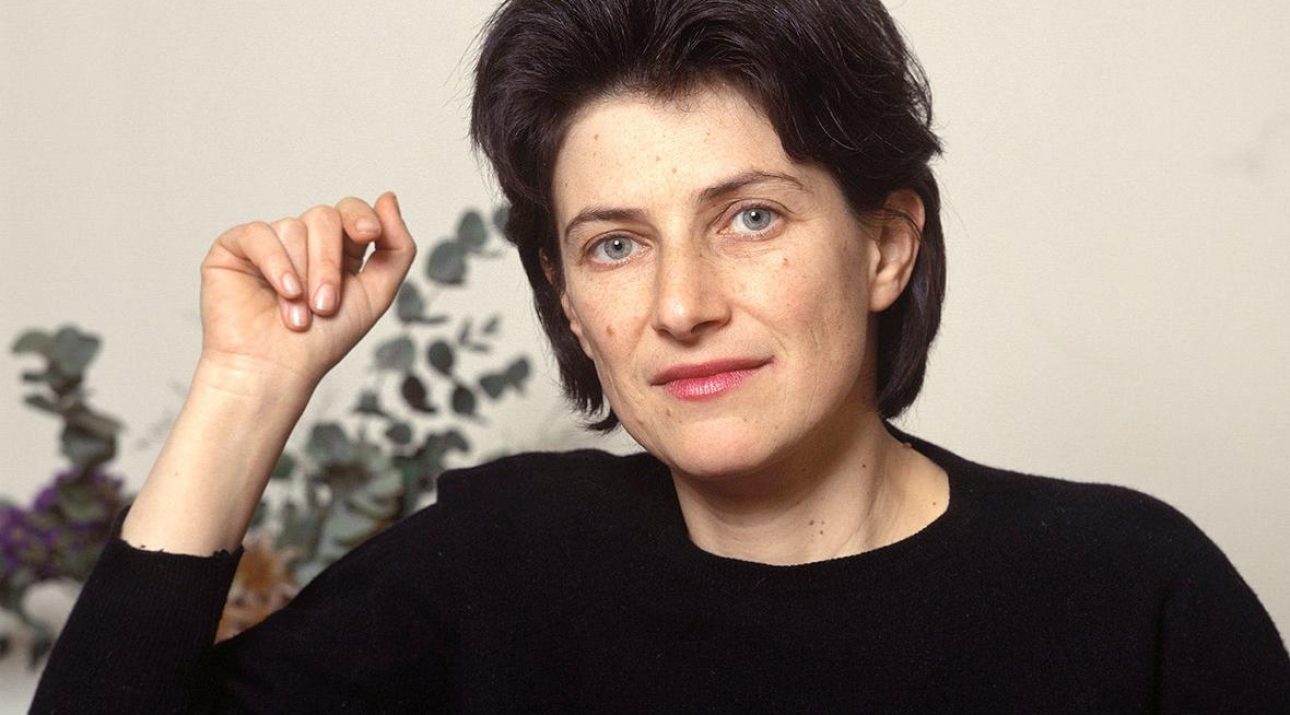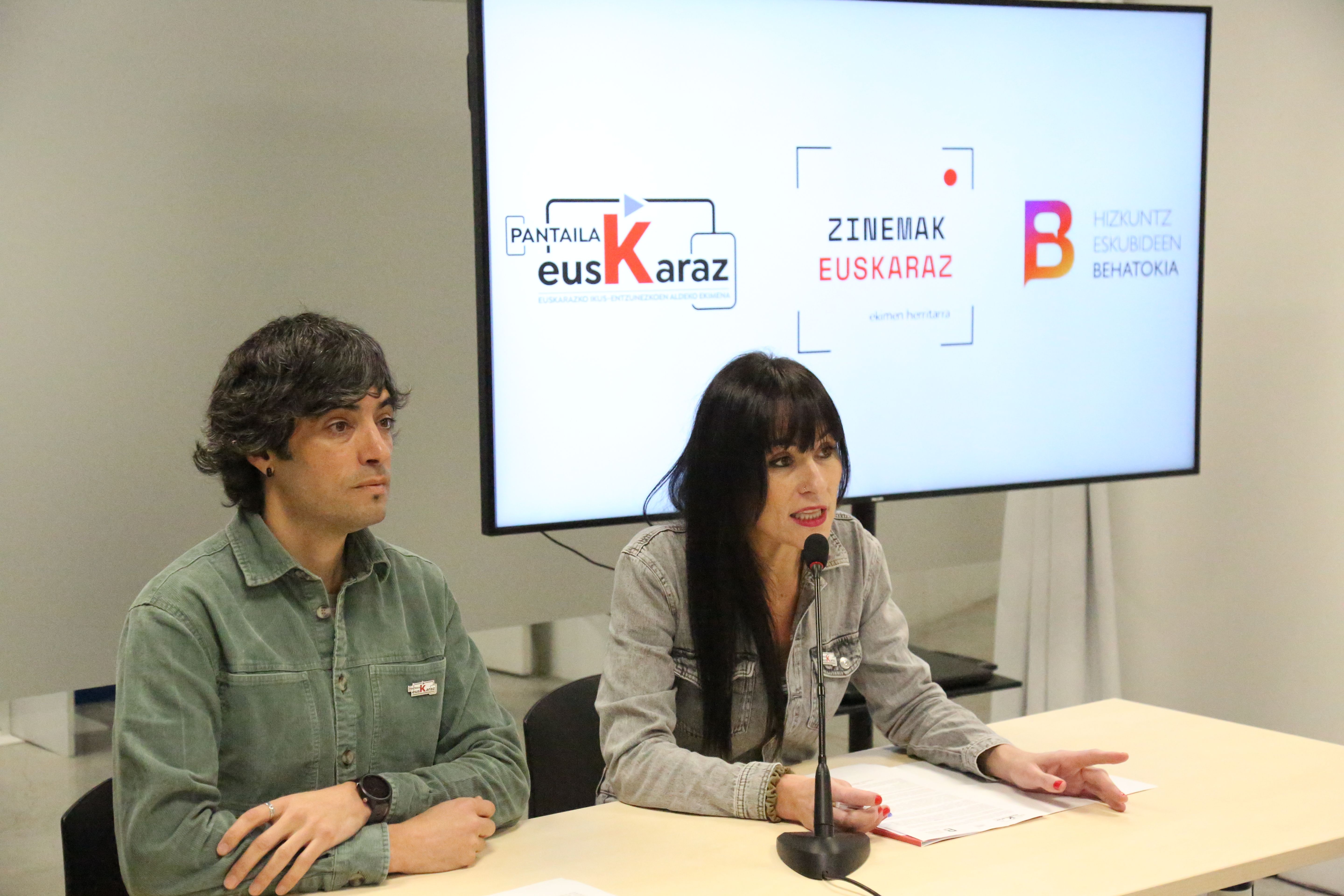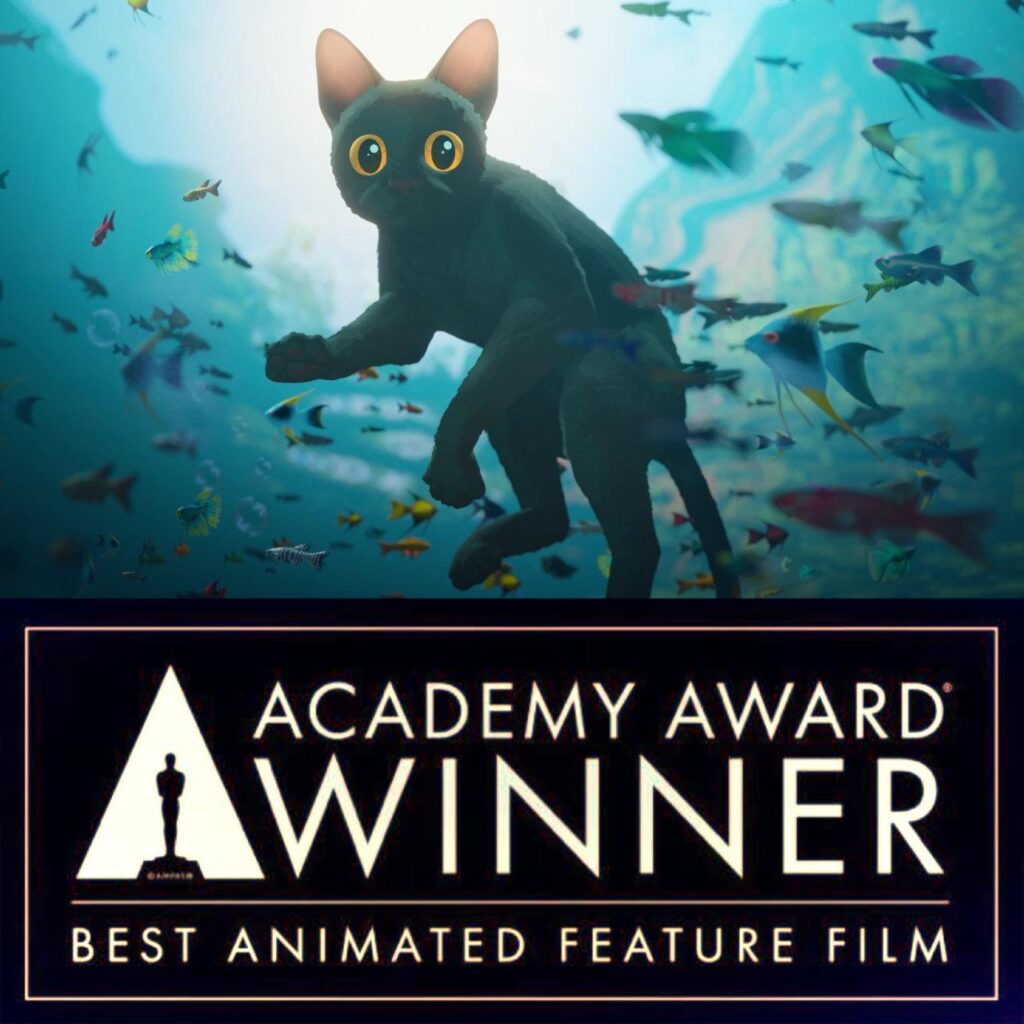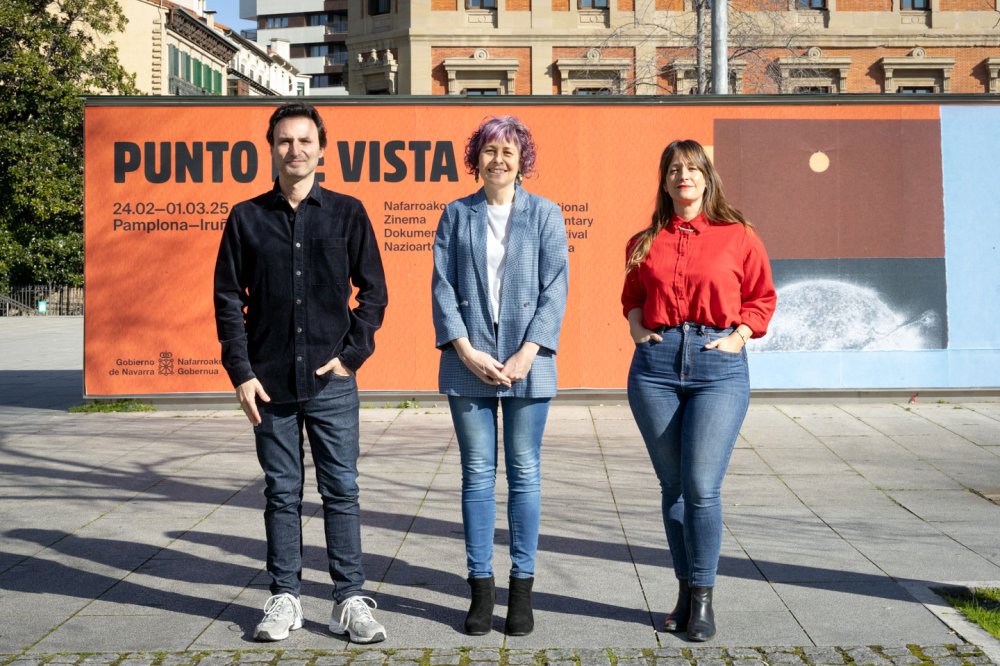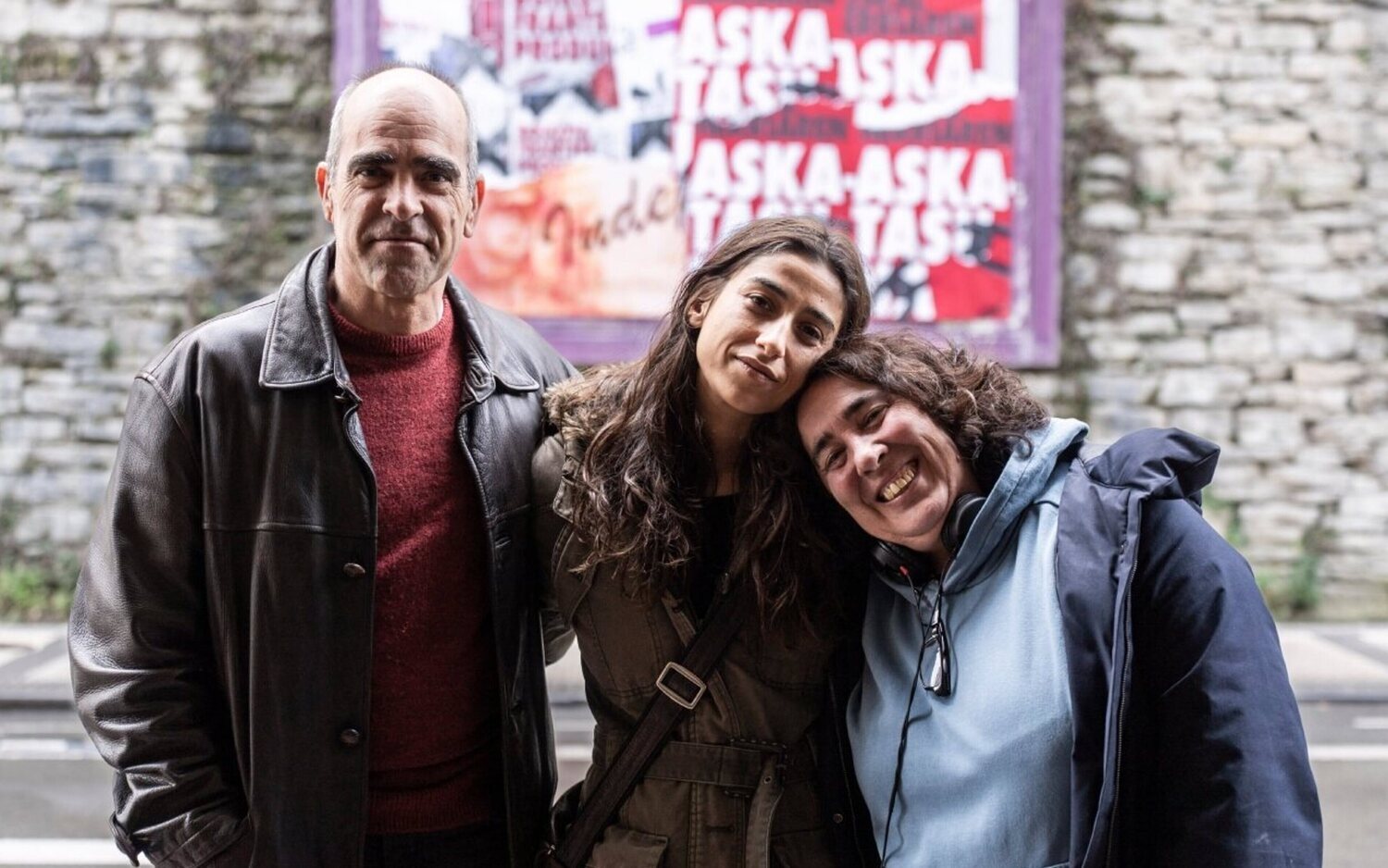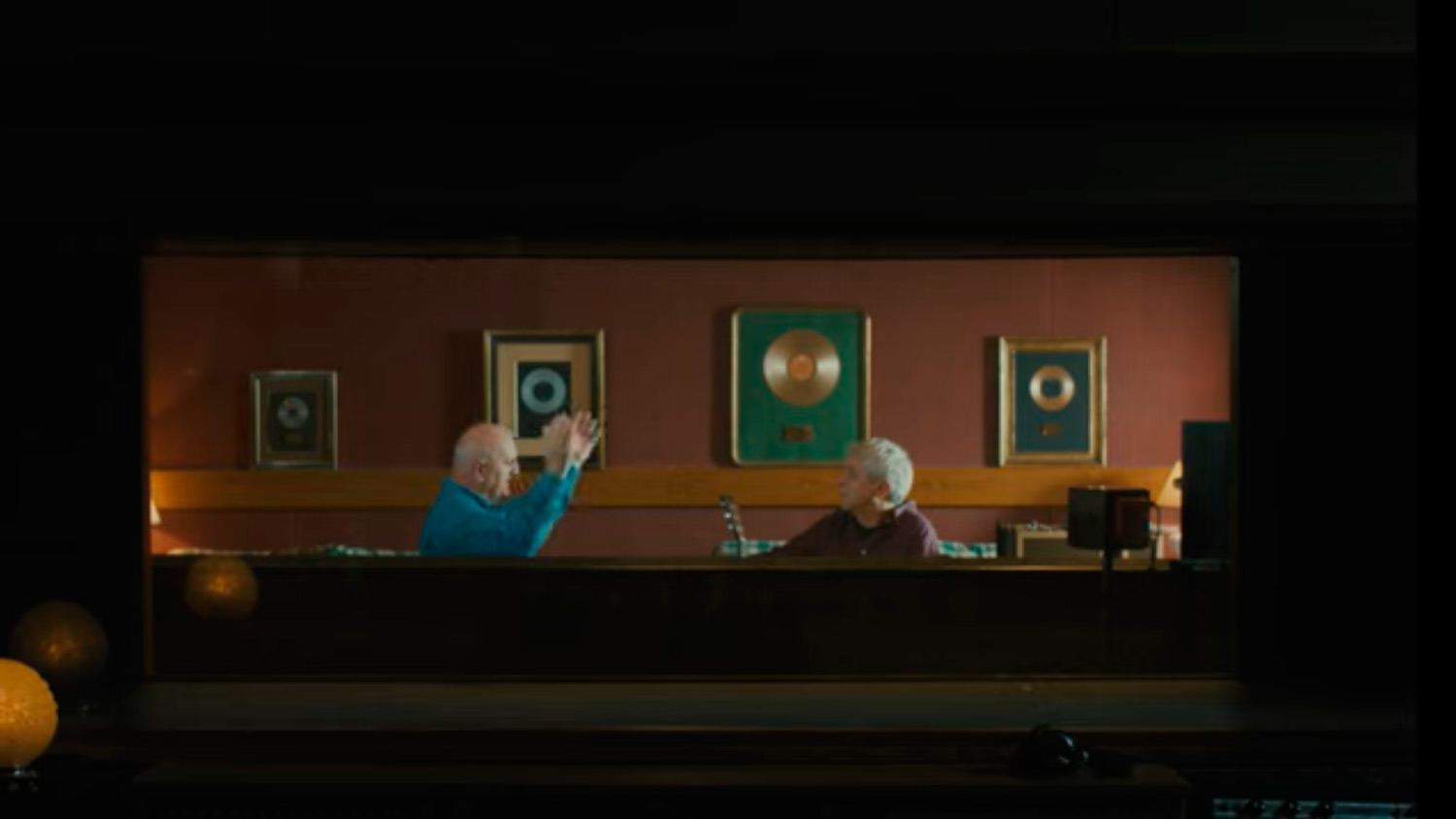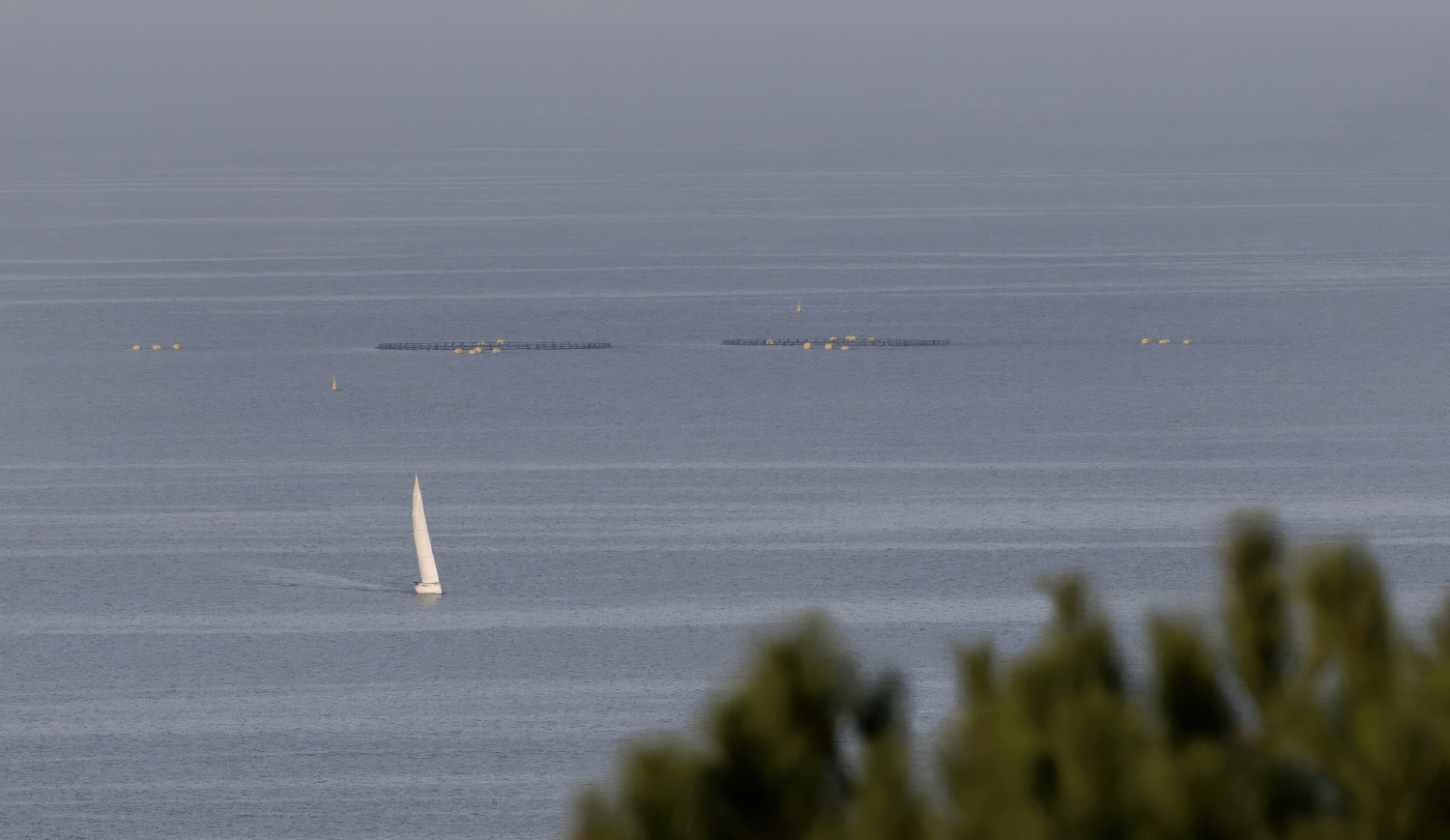"If we want a strong film industry, we have to offer training pathways"
- The producer occupies a prominent place in film credits. But nine out of ten spectators would not know what their work is. We head to Ander Sagardoy for answers. The film Sumendi started with his brother Eneko and combines his activity with the work he does in most of the production company Irusoin. Like last year, the Casa de Cultura Larrotxene de Donostia-San Sebastián will host in February the course Film production: from creation to exploitation.

Let's start to dodge misunderstandings. Focusing on film credits, you can find many names that refer to production or production: producer, executive producer, production director… What is it? And what is their role?
The credits we see are often in Spanish, and yes, there are many categories with the term of production, but they are not the same. The producer, to sum up, is the owner of the film. It buys rights and tries to find ways to finance this film, either by selling television or through subsidies. Once the necessary money is available, the executive producer is normally included as a contract to replace the original producer and supervise the project. And then, when you have to start the movie, the production director and the production helpers who are underneath come into the process. The production director decides how to manage the budget. This last part, related to the routing, is not my job.
The place of the producer is the office. It could be compared to the structures of sports teams.
We do the work of the president’s office, we go up and down with the budgets, but those who are in contact with those who “play”, who make everyday decisions, are others. Normally we're not going to shoot. We present new projects, get together with distributors…. It's curious: you can be two years fighting for the funding of a project, and when it seems that it's the most beautiful thing, sharing spaces with actors, director… we leave the process. I get to the office the recorded material and I see the shape of the film.
Irusoin and Sumendi, Sumendi and Irusoin. Both are producers, workers and owners. How do both tasks combine?
I was working in a production company in Barcelona when we founded Sumendi, and I started taking the first steps in that production outside my working day, with small projects. That was the opportunity to start working in Irusoin, and since then I have followed the same logic. From Sumendi, it allows me to work with people nearby, for example, who don't have that much experience. Learn more or less when the producer is yours. Irusoin offers me stability and Sumendi is a complement that serves us to carry out smaller projects, such as those of his brother Eneko.
.jpg)
For those who do not know them, what is the difference between the dimension of both?At the level of the Basque Country, Irusoin
is one of the most consolidated and significant film producers, although covering the entire Spanish State, mainly by the production of the Greater Moriarti, Loreak, Trinchera Infinita, etc. This gives it legitimacy and ability to do coarse projects and work continuously. Then there are smaller, incipient producers who mainly perform short films. One of them is Sumendi.
Short films have few windows to reach the viewer. Why are they doing so much?
The first work of a director is often brief. They tend to be to try, to see if you're able to do something you like, to play ... At the same time, there is a way to increase the possibilities for public calls for grants for subsequent films. If you get a short tour, if you accept it at significant festivals, you will have the opportunity to long. If not, it will be very difficult. These public calls cover the trajectory of both directors, producers and producers.
"If you get a short tour, if you accept it at significant festivals, you'll get a chance to go long. If it doesn't, it will be very difficult."
We are talking a lot about
subvenciones.Las public subsidies are currently the main economic basis for films produced. Mainly in feature films, but also in short films. There are limits: you cannot pay a hundred percent with public money, and depending on various variables, between the gender or language of the responsibility charges, this maximum percentage varies. But in all cases, understanding and knowledge of public subsidies is essential for producer work. Many times that is what will solve the start-up of a project.
I have heard that you receive many drafts of projects, both in Sumendi and in Irusoin. But you have to give a lot of negative.
When we receive proposals, we constantly ask ourselves: Is it worth spending time trying to lift this project? Of course, we take into account the script. But there are more things: the feasibility of the project, the director’s trajectory… and even if we pass all those filters, we cannot always give the yes. A shoot can last up to seven weeks. But we, from the time we took a project to the time we rolled out, worked three or four years.
Accepting a project means excluding many others. We are now studying what projects we are going to present at Irusoin, in 2025 or 2026. That is the work of the producer, always looking at what is coming.
Does the presence of young producers allow young writers, directors or technicians to make the path easier?
I think so. If you are a young creator and see a young producer, you expect a certain tuning. The young producers facilitate the access of the young worker or creator, as well as more horizontal relationships. There's an age factor, and because we're not so involved in the dynamics of the industry, we have more capacity to question some things. It's not easy, because the dynamics in shooting are very hierarchical, but we try to distribute power as much as possible.
.jpg)
In that context, you have decided to offer a production course for those who want to start working as productores.La proposed
came to me through the accordionist Xanti Salvador. He invited me to teach a short class in the course he teaches at the Casa de Cultura Larrotxene, and the head of it, Unai Gerra, proposed to design a à la carte course. I hadn't lectured before, and I took it as a challenge. He foresaw people coming up early or eager to start, and at that beginning he focused on how to take the first steps effectively. The simplest path is the short one.
It seems generous that, insofar as subsidies are limited, the lack of information benefits those who have already done so or who you are.
There's that mobility of competitiveness, don't I leave any stones explaining this? But the truth is, in short, nobody survives.
In the long run the situation is different: In the CAPV, for example, five or six projects are subsidised a year, and there is a lot of competition there. We acted seriously there. If you are not subsidized, a lot of work can stay “in nothing.” So the question is: Do I have to give up helping beginners, fear of losing my current privileged position? It's a pretty dangerous behavior. Almost everyone has helped us on one occasion. I want good directors and technicians next to me, with level and experience, and that's achieved with projects. In order to achieve this, we also need skilled producers.
Can the two-week course fill a gap in Basque training?
In Larrotxene, there are people who work very hard and enthusiastically to get those courses out. But it's not enough. In Euskal Herria there are no universities or public courses in Euskera that regularly collect the profession of production, or cinema. Yes in Barcelona, Madrid, Paris, etc. And people, who can, do it: go there.
It is the responsibility of all, especially public institutions, to provide resources to receive such training here. It is necessary if we want a strong film industry. There is now a lot of work in the film industry, but people have to be given the opportunity to prepare themselves for it, without necessarily having to devote themselves to meritoriums, scholarships or similar precarious work, I don't know how many years.
"The public must be given the opportunity to train, without necessarily dedicating themselves to meritorists, scholarships or similar precarious jobs, for how many years they do not know"
He says there's a lot of work going on. In Bizkaia, for example, many films and series have been produced in recent years.
Includes the tax incentive account. It is a political decision, taken in Bizkaia, to support the film industry. It is done in many other sectors, and in cinema they have always existed, but the truth is that in Bizkaia the usual percentage has increased. Now, spending the same amount in Gipuzkoa, Madrid or Bizkaia, benefits more in Bizkaia. This has led, among other things, to many Spanish producers moving to Bizkaia. And it's dangerous because it distorts reality. When measures of this kind are in place, it must be ensured that the producers, the workers and the local histories have room in that crazy productive jungle that can be created.
And then there's a second effect, that incentives push the producers to work with the technicians here. That is good, but not at all. Big platforms come to make superproductions, they take a lot of workers and now we, in some cases, have to look for technicians outside.
Does it envisage that the measure will also be equal in Álava and Gipuzkoa?
Yes, Gipuzkoa and Álava have decided to match the measure, and in the medium term, there will probably also be changes in the Spanish State. That is why, although provisionally good, it is dangerous in the long term. The resulting benefits and dynamics need not be stable.
They just presented the first short run by your brother Eneko with Sumendi: Always night. Is it a turning point in your journey?
This project was the first short Sumendi would produce. The script was written three years ago by Nerea Ibarzabal and Eneko Sagardoy. We wanted to produce between the producers Sumendi and Galapán, and that is when the first crisis gave it to me, because it was a great responsibility, because I had everything very close… We decided to postpone it without clear dates.
In this sense, it has been nice at last to do the Night of Always, because it has reminded us of the passion and the initial sense of Sumendi. We've done things in that time, fortunately, but being able to do this has made us so excited. The actress is her best friend Miren Gaztañaga, and has accompanied us Elena Irureta, and a wonderful technical team. We are now moving the film at festivals, but it will be on Movistar from June and I hope it can also be seen in Primeran.
In Irusoin they just produced a series for Disney: Biologic by Cristóbal Balenciaga. How do you affect the producers on behalf of platforms or their customers? Is it the risk of becoming mere intermediaries? When
a platform is introduced, the ownership of the project is the platform. You may feel very yours, but when you have agreed to introduce the platform is nothing more than a service provider who is working for a third party. In our case, however, the platform has not been too high. Surely because they wanted the name and signature of the directors of Moriarti, and that trust has allowed a little intrusive relationship. Come and give your opinion, but fortunately our experience has been very free. But yes, platforms have the possibility to condition all decisions: casting, casting, assembly, title… It loses the property and power that the producer normally has.
Donostiako Tabakaleran, beste urte batez, hitza eta irudia elkar nahasi eta lotu dituzte Zinea eta literatura jardunaldietan. Aurten, Chantal Akerman zinegile belgikarraren obra izan dute aztergai; haren film bana hautatu eta aztertu dute Itxaro Bordak, Karmele Jaiok eta Danele... [+]
35 film aurkeztu dira lehiaketara eta zortzi aukeratu dituzte ikusgai egoteko Euskal Herriko 51 udalerritan. Euskarazko lanak egiten dituzten sortzaileak eta haiek ekoitzitako film laburrak ezagutaraztea da helburua. Taupa mugimenduak antolatzen du ekimena.
Pantailak Euskarazek eta Hizkuntz Eskubideen Behatokiak aurkeztu dituzte datu "kezkagarriak". Euskaraz eskaini diren estreinaldi kopurua ez dela %1,6ra iritsi ondorioztatu dute. Erakunde publikoei eskatu diete "herritar guztien hizkuntza eskubideak" zinemetan ere... [+]
Geroz eta ekoizpen gehiagok baliatzen dituzte teknologia berriak, izan plano orokor eta jendetsuak figurante bidez egitea aurrezteko, izan efektu bereziak are azkarrago egiteko. Azken urtean, dena den, Euskal Herriko zine-aretoak gehien bete dituztenetako bi pelikulek adimen... [+]
Otsailaren 24tik eta martxoaren 1era bitartean, astebetez 60 lan proiektatuko dituzte Punto de Vista zinema dokumentalaren jaialdian. Hamar film luze eta zazpi labur lehiatuko dira Sail Ofizialean; tartean mundu mailako lau estreinaldi eta Maddi Barber eta Marina Lameiro... [+]
A conference for architects has just been held in Madrid to discuss the crisis of the professional architect. They have distinguished the traditional and contemporary way of being an architect. What is traditional? From the epic architect who appears in The Brutalist, where... [+]
Itoiz, udako sesioak filma estreinatu dute zinema aretoetan. Juan Carlos Perez taldekidearen hitz eta doinuak biltzen ditu Larraitz Zuazo, Zuri Goikoetxea eta Ainhoa Andrakaren filmak. Haiekin mintzatu gara Metropoli Foralean.











